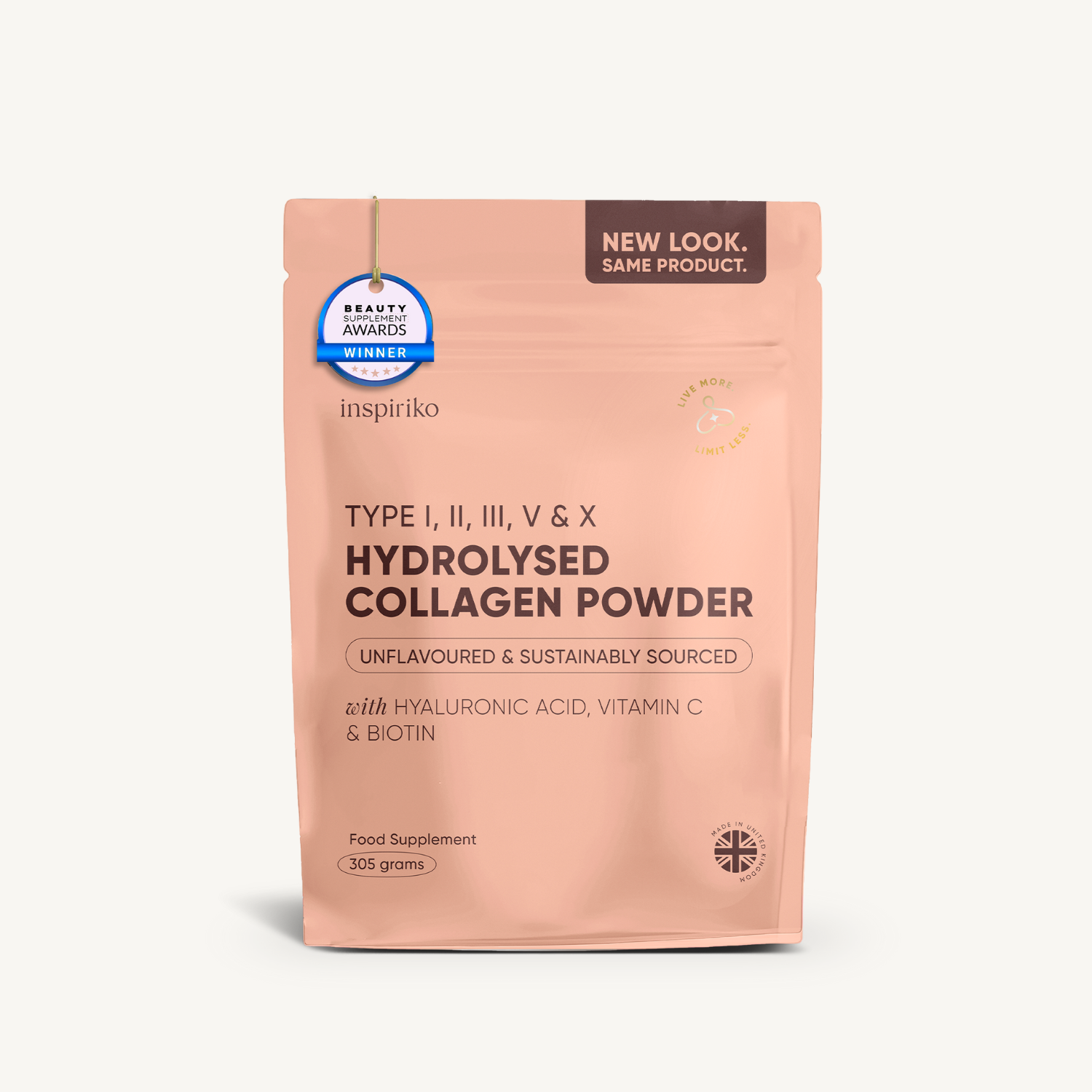Mediterranean Diet 101: The Recommended Diet for Menopause
When trying to feel better, some people do the most curious things. For example, have you ever heard of the cotton diet? Yes, as its name suggests, it consists of dipping cotton balls in juice and eating them to feel full and lose weight. Even if it sounds insane, some people would go to those lengths to get slimmer and feel better.
The good news is that you don’t have to try out these crazy methods to improve your health, particularly during menopause. Instead, why not try proven healthy meal plans like the Mediterranean diet? It’s not a diet per se but a healthy eating plan that will help you make better nutritional choices to help you look and feel your best. If this interests you, keep on reading and discover why the Mediterranean diet is the recommended eating plan for women during menopause!
Why Is the Mediterranean Diet Good for Women in Perimenopause & Menopause?
The Mediterranean diet is characterized by its flexibility and its focus on certain foods that are mostly eaten in the Mediterranean area. Some examples include olive oil, red wine, avocado and nuts. Shifting from a common Western diet full of sugar and processed foods will certainly help you improve your health and lose weight, too. But did you know the Mediterranean diet also has amazingbenefits for women in perimenopause and menopause?
Let’s have a look at them in detail:
It Promotes Heart Health
Menopause brings about a higher risk for heart disease, as during this period the amount of female hormone decrease. This, in turn, can constrict coronary arteries and lead to heart attacks (1).
Following the Mediterranean diet can help your heart stay healthy. Several studies prove that this diet can significantly lower your risk for heart disease (2), especially for people who regularly drink red wine and use olive oil as a dressing.
If you follow the Mediterranean diet, you’ll be eating a lot of fatty fish with Omega-3 oils, which are associated with a lower risk of suffering from infarctions and thrombosis (3). Together with heart disease, menopause can also bring about a higher risk for stroke. The Mediterranean diet can be helpful when preventing blood clotting (4), as it promotes the consumption of natural blood thinners like tomatoes or blueberries.
It Supports Your Blood Sugar Levels
Together with menopause comes the difficulty of maintaining stable blood sugar levels. Your dwindling hormones will cause your glucose to go up and down erratically whenever you eat something with sugar. Unfortunately, this can contribute to the development of diseases such as insulin resistance and type 2 diabetes (5).
If you’d like to change your lifestyle to avoid health issues and potential complications, the Mediterranean diet can be of great help. As it focuses on protein, healthy fats, and whole grains, you’ll be able to keep your blood sugar levels under control (and even lose weight in the process, if you want to!).
It Can Improve Cognitive Function
The Mediterranean Diet can also protect your cognitive function and help with brain fog, which is a typical symptom of menopause. Again, hormones are to blame, as lowering levels of progesterone are many times associated with irritability, mood swings, and brain fog (6).
Some studies in this field This study carried out in 2016 prove that a higher intake of fresh vegetables, fruits, and healthy fats is beneficial for the brain and can even decrease the risk of suffering from dementia and mild cognitive impairment (7).
It Can Protect Your Bones
Did you know that menopause speeds up bone loss and increases your risk of suffering from osteoporosis? (8) That is why it is vital to protect your bone health during this period and there’s no better way to do this than by eating healthy. As current research shows, eating low-fat dairy, fresh vegetables like spinach or collard greens, and fish (all foods included in the Mediterranean diet!) is essential for maintaining good bone health (9).
So, let’s cut to the chase and explore the basics of the Mediterranean diet so you can get started with improving your health and lessening menopause symptoms, among other benefits.
The Basics of the Mediterranean Diet
As we said before, the Mediterranean diet is not exactly a diet but a change in your eating habits: you’ll eat more naturally (as your diet will consist mainly of fruits, vegetables, whole grains and lean meat) and get rid of ultra-processed foods and sugary beverages.
Plus, if you follow the Mediterranean diet, you’ll prioritize healthy sources of fat like olive oil, nuts, fatty fish, and seeds. And you won’t have to adhere to this “diet” for a fixed period of time but the change will be for life. But don’t worry: as it hits the right balance between delicious and nutritious, you won’t be missing processed foods for long!
While there are no strict rules on how to follow the Mediterranean diet, there are certain guidelines we are sharing with you below:
Eat Lean Protein
If you decide to follow the Mediterranean diet, keep in mind that around ¼ of your plate should consist of proteins. White meat like chicken and turkey will provide you with the lean protein you need to stay healthy and develop muscle tissue.
Fish like salmon and tuna will also provide you with Omega-3 oils, essential to protect your heart during menopause, along with protein. You can also increase your consumption of healthy proteins by eating lentils, chickpeas and other beans at least once a day.
Increase Your Intake of Vegetables and Fruits
Vegetables should make up half your plate. The more colors, the better! Excellent vegetables to eat daily include arugula, kale, spinach, carrots, red peppers, cabbage, cauliflower, Brussels sprouts, tomatoes and onions.
And anytime you have sugar cravings, you can always eat fruit. Mangos, bananas, apples, blueberries, pears, peaches, melons, grapes, figs, you name them!
Choose Healthy Fats
Unsaturated fats, like olive oil, nuts, seeds, avocado, and salmon, should also be protagonists of your Mediterranean diet, helping you manage inflammation and stabilize your heart rhythm, among other benefits (10).
Eat whole grains
Finally, the remaining ¼ of your plate should be filled with whole grains like brown rice, oats, rye, barley or quinoa, which are great sources of fiber, protein, and other essential nutrients.
What Not to Eat in the Mediterranean Diet:
- No processed foods in general, but particularly red meat like hot dogs or bacon
- Sugary foods are excluded from the Mediterranean diet (candy, desserts, and everything else made with sugar, though you can use stevia as a sweetener).
- Refined grains like white bread or pasta.
- Sodas and other sugary beverages. Use water as your main hydration source instead.
- No alcohol but wine (mostly red).
- And no oils but extra virgin cold pressed oils like olive oil.
Final Takeaway
All in all, the Mediterranean diet is not a “diet” but it’s a new lifestyle that will change your quality of life for the better. In particular, if you are going through perimenopause or menopause, as the nutrients obtained with this diet can help with the main complications that appear in this period.
As it encourages the consumption of fresh vegetables filled with calcium, you will be protecting your bone health and protecting osteoporosis. Omega 3 oils, on the other hand, will help you avoid heart disease and improve cognitive function. All the while you gain lean muscle and lose those extra kilos that may appear during these years (menopause belly, anyone?).
The best part is that the Mediterranean diet can be adapted so it suits your lifestyle and you can even complement it with supplements for better results. Adopt the Mediterranean diet and soon you’ll feel healthy, full of energy, and fresh like the vegetables you eat!
Related Products
References for the blog
-
Bhf.org.uk. 2022. Menopause and heart disease. [online] Available at:
https://www.bhf.org.uk/informationsupport/support/women-with-a-heart-condition/menopause-and-heart-disease#:~:text=During%20and%20after%20the%20menopause,the%20build%2Dup%20of%20plaque -
Grosso, G., Marventano, S., Yang, J., Micek, A., Pajak, A., Scalfi, L., Galvano, F. and Kales, S., 2017. A comprehensive meta-analysis on evidence of Mediterranean diet and cardiovascular disease: Are individual components equal?. Critical Reviews in Food Science and Nutrition, 57(15), pp.3218-3232.
-
Iso, H., 2001. Intake of Fish and Omega-3 Fatty Acids and Risk of Stroke in Women. JAMA, 285(3), p.304.
-
Paterson, K., Myint, P., Jennings, A., Bain, L., Lentjes, M., Khaw, K. and Welch, A., 2018. Mediterranean Diet Reduces Risk of Incident Stroke in a Population With Varying Cardiovascular Disease Risk Profiles. Stroke, 49(10), pp.2415-2420.
-
Kelly, L., 2021. Diabetes and menopause. [online] MayoClinic. Available at:
https://newsnetwork.mayoclinic.org/discussion/consumer-health-diabetes-and-menopause/ -
Maki, P. and Henderson, V., 2016. Cognition and the menopause transition. Menopause, 23(7), pp.803-805.
-
Hardman, R., Kennedy, G., Macpherson, H., Scholey, A. and Pipingas, A., 2016. Adherence to a Mediterranean-Style Diet and Effects on Cognition in Adults: A Qualitative Evaluation and Systematic Review of Longitudinal and Prospective Trials. Frontiers in Nutrition, 3.
-
LINDSAY, R., 1996. The menopause and osteoporosis. Obstetrics & Gynecology, 87(2), pp.16S-16S.
-
Quattrini, S., Pampaloni, B., Gronchi, G., Giusti, F. and Brandi, M., 2021. The Mediterranean Diet in Osteoporosis Prevention: An Insight in a Peri- and Post-Menopausal Population. Nutrients, 13(2), p.531.
-
The Nutrition Source. 2022. Types of Fat. [online] Available at:
https://www.hsph.harvard.edu/nutritionsource/what-should-you-eat/fats-and-cholesterol/types-of-fat/#:~:text=Unsaturated%20fats%2C%20which%20are%20liquid,number%20of%20other%20beneficial%20roles







